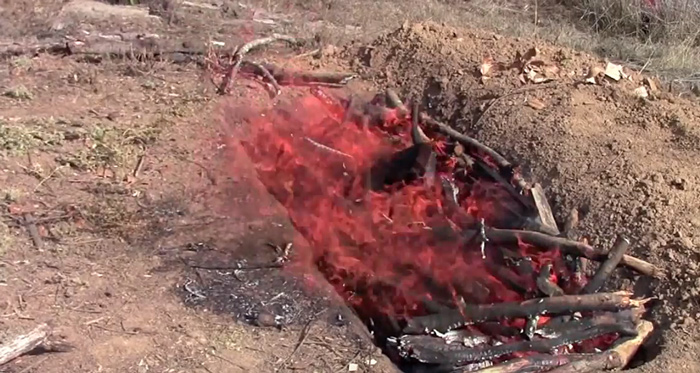There is a lot of brush on our garden lot right now, all chopped up and piled in piles. A lot of the wood is covered in thorns and really a pain to manage. I’d like to light some fires and make some biochar at some point; however, the weather is quite dry and there is a lot of wind at this time of the year.
I was talking with a local guy last night and told him what I wanted to do. He told me that when people want to burn during the dry season, they usually dig a trench and clear away all the debris around it, then light their fires in the trench.
Makes sense to me. That’s a lot like this method Steven uses to make biochar:
The problem is that it’s a terrible pain in the neck to dig here because of all the rocks and clay, but I think I’ll see what I can do. The rainy season is coming and I need to space to plant corn. Plus, biochar!


3 comments
I used to use a burn barrel. But after the bottom rusted out, I started digging trenches to make charcoal. Works fine, and if you’re strategic about where you dig, saves the trouble of moving it to the garden– it’s already in the ground, you can just bury it, or if you douse it with water you can then compost in the trench until it is full, then plant in it.
My land is very alkaline. Would biochar be a good thing or just make it more alkaline?
Anna over at The Walden Effect has some experience with this. They’ve since moved to another location, but their original homestead had alkaline soil. Her solution for that was to sift out ashes, and only apply the charcoal to the garden. She didn’t notice any effect on the soil, one way or the other: http://www.waldeneffect.org/blog/Biochar_a_dud_in_temperate_regions/
(the soil where I live is extremely sandy as well as acid, so it’s the ideal candidate for biochar amendment)
Comments are closed.